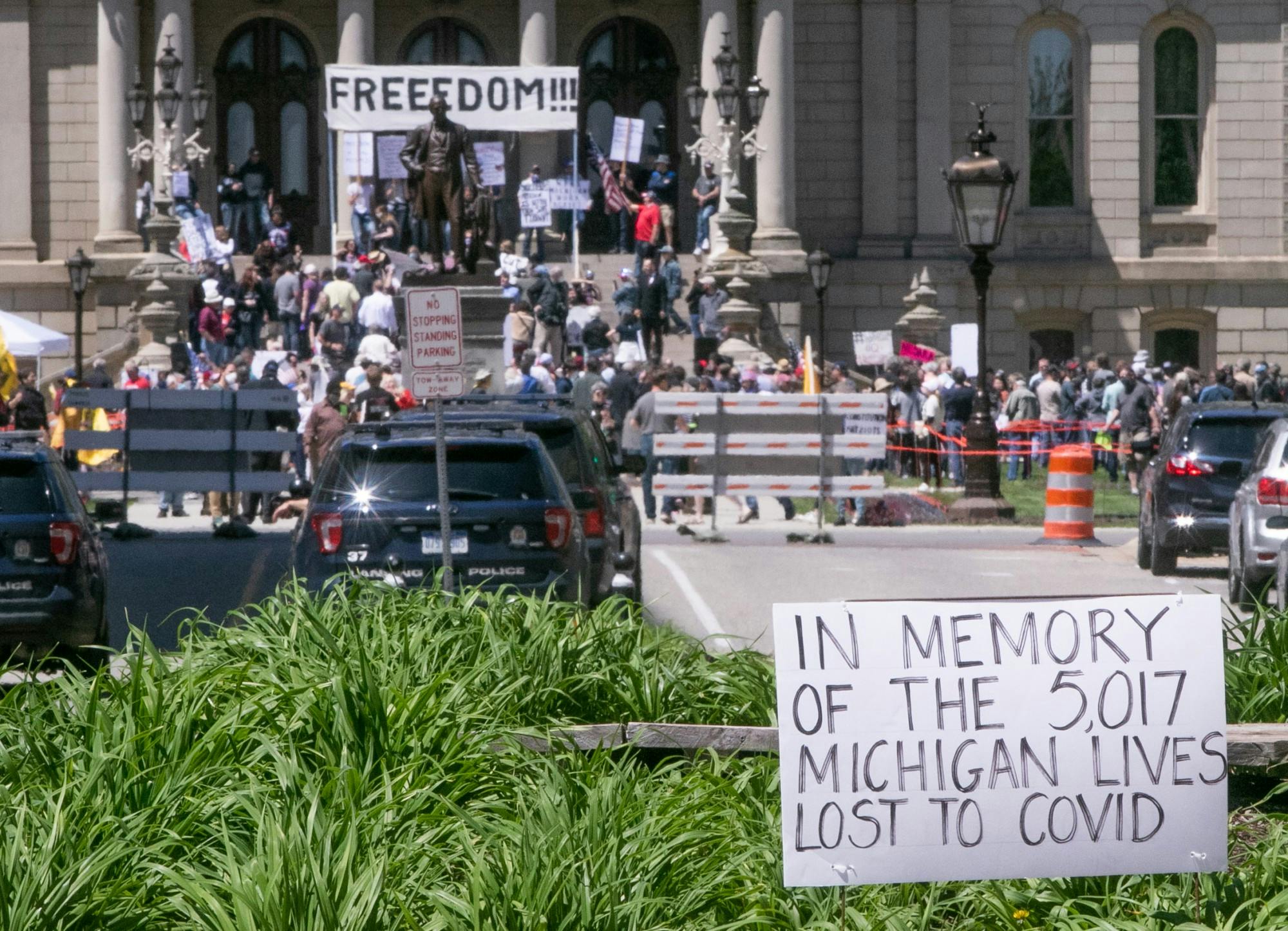More than 10 weeks after the first two confirmed COVID-19 cases in Michigan, Gov. Gretchen Whitmer is beginning to ease up restrictions put in place by her executive orders as the coronavirus curve continues to flatten.
According to Michigan's coronavirus website Friday, the state has recorded 53,510 total cases of COVID-19 and 5,129 deaths over the past two months. Case and death trends are continuing to improve.
Whitmer concluded the week by extending the "Safer at Home" order through June 12 and the emergency declaration through June 19.
At a press conference Thursday a separate order was signed allowing all retail businesses in the state the ability to open by appointment only, as long as there are no more than 10 customers in a store at one time.
“The data has shown that all regions of Michigan are ready for us to take this small step forward,” Whitmer said. “We’re doing this incrementally. … This is like a dial we’re turning, not a switch that we just flip.”
The order also allows for gatherings of 10 people or less, as long as people continually practice social distancing.
The announcement of appointment-only retail throughout the state came days after the governor’s partial reopening of the Upper Peninsula and greater Traverse City area, allowing retail businesses in these areas, including bars and restaurants, to open back up with limited seating capacity.
“These regions stand apart from the rest of the state in terms of COVID-19 health indicators,” Whitmer said. “They show the lowest cases per capita by a wide margin. They have extremely low deaths per capita, low and declining cases of COVID-19, low and declining need for hospital case loads and deaths per day of four or fewer.”
As retail businesses are beginning to reengage with the economy, Whitmer also announced the signing of an executive order to protect workers, which requires businesses that resume in-person work to develop a COVID-19 preparedness and response plan.
Reopening businesses must also provide COVID-19 training to workers that covers workplace infection-control practices, the proper use of personal protective equipment, steps that workers can take to notify an employer of coronavirus symptoms or a diagnosis and how to report unsafe working conditions.
To help ensure that reopening businesses are in compliance with the requirements they must meet, the governor also signed an executive directive calling for the appointment of a director of COVID-19 worker safety.
Following Whitmer’s easing of restrictions, the ruling in the lawsuit waged against her by the Republican-majority state legislature came back in favor of the governor.
Court of Claims Judge Cynthia Stephens found Whitmer’s actions and executive orders were within her authority under the 1945 Emergency Powers of Governor Act, or the EPGA. Therefore, the executive orders issued by the governor are still in place.
Stephens, however, sided with the legislature regarding the governor’s ability to redeclare a state of emergency under the 1976 Emergency Management Act, or EMA, which the judge found she did not have the ability to do.
“While the Governor’s action of re-declaring the same emergency violated the provisions of the EMA, plaintiffs’ challenges to the EPGA and the Governor’s authority to issue Executive Orders thereunder are meritless,” Stephens wrote in her opinion.
The governor’s office released a statement following the ruling, commending the decision and praising those working to flatten the curve of the virus.
“Today’s decision recognizes that the Governor's actions to save lives are lawful and her orders remain in place,” the statement said. “She will continue to do what she’s always done: take careful, decisive actions to protect Michiganders from this unprecedented, global pandemic. We owe it to our front line heroes who have been putting their lives on the line to pull together as a state and work as one team to stop the spread of this virus.”
State Senate Majority Leader Mike Shirkey, R-Clarklake, also issued a statement following the decision, stating it will be appealed to the state Supreme Court.
“While we are disappointed by aspects of this determination, we are vindicated in our assertion that the Governor acted unlawfully in attempting to extend the states of emergency and disaster under the Emergency Management Act without legislative approval,” Shirkey said in the statement. “We are confident in our position and will appeal this ruling.”
Editor's note: This story was updated to reflect the extension of the governor's state of emergency and "Safer at Home" order.
Support student media!
Please consider donating to The State News and help fund the future of journalism.
Discussion
Share and discuss “State's COVID-19 response recap: Restrictions ease, judge rules in favor of Whitmer, more ” on social media.








